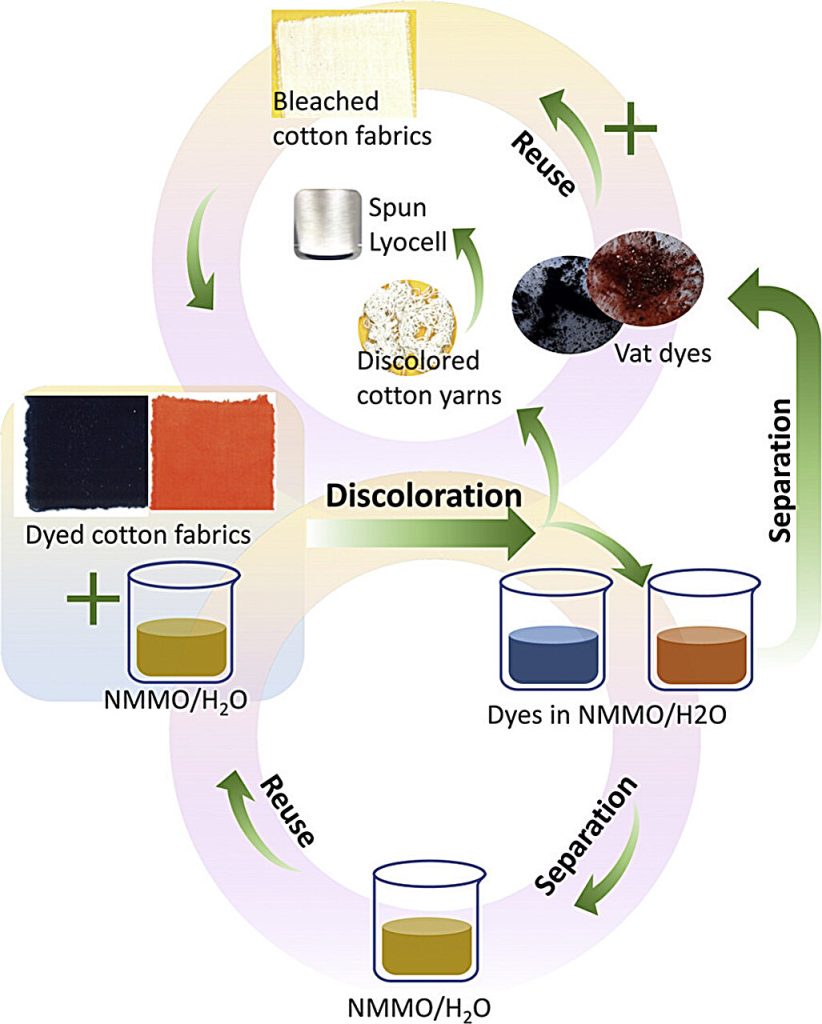The textile industry is facing environmental challenges as demand continues to soar. Yiqi Yang, a researcher at the University of Nebraska–Lincoln, has created a groundbreaking technology for chemical recycling of textiles to address this issue.
Over the past two decades, fiber production has doubled, leading to a massive consumption of 125 million metric tons of fibers annually. To combat this trend, Yang’s innovative technology focuses on fiber-to-fiber recycling, which removes dyes, separates blends, and produces high-quality fibers.
Traditional textile recycling methods mostly involve breaking down textiles into fibers for other products. Garment-to-garment recycling is limited, while yarn-to-yarn recycling is available but destructive. Yang’s aqueous system technology offers a solution by successfully recycling fibers without damaging dyes or fiber polymers.
The technology has been applied to various fibers, including cotton, polyester blends, acrylics, wools, and even denim. It can produce artificial cellulosic fibers with superior properties using vat dyes and is economically viable and scalable for industrial application.
Yang’s research aims to enhance the sustainability of the textile industry, focusing on improving recycling methods and creating new fibers from agricultural waste like chicken feathers. By addressing these challenges, Yang believes that the industry can meet the growing demand for textiles in a more sustainable way.


